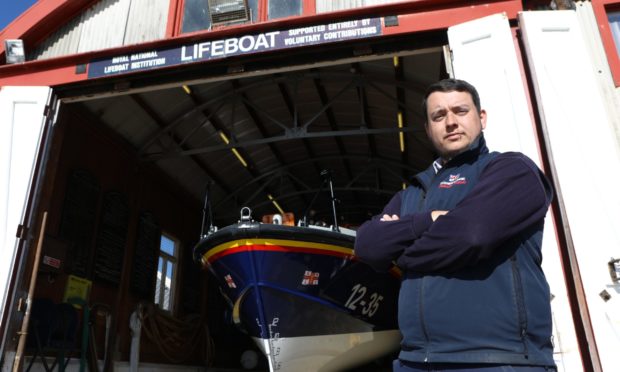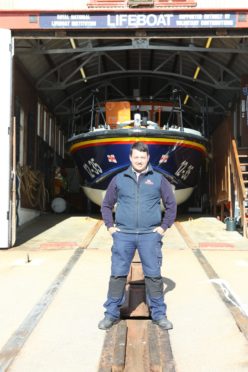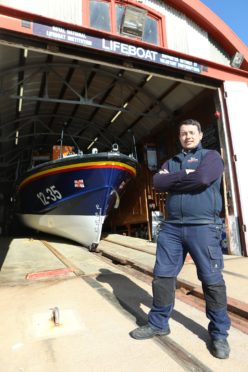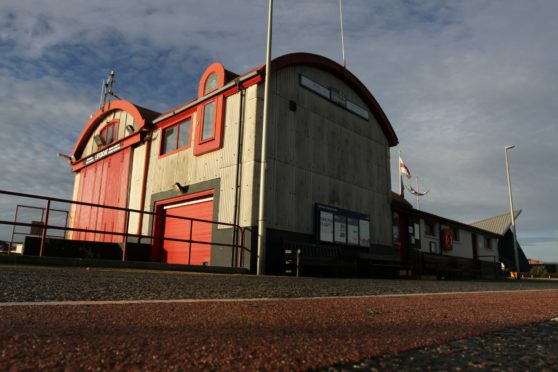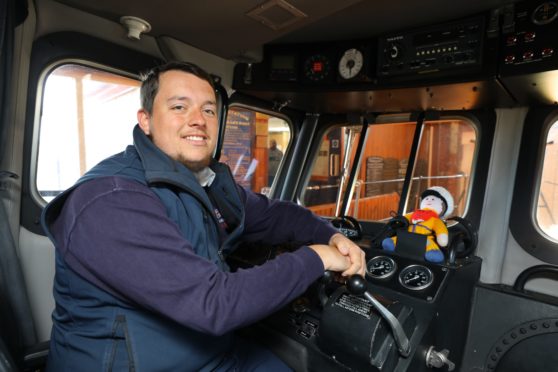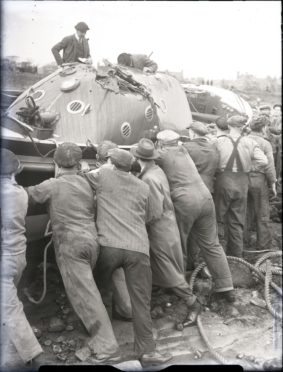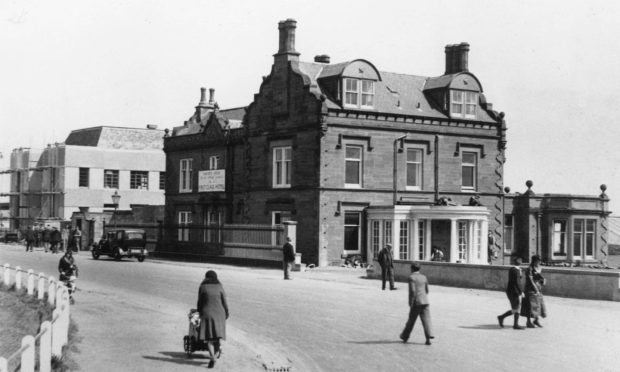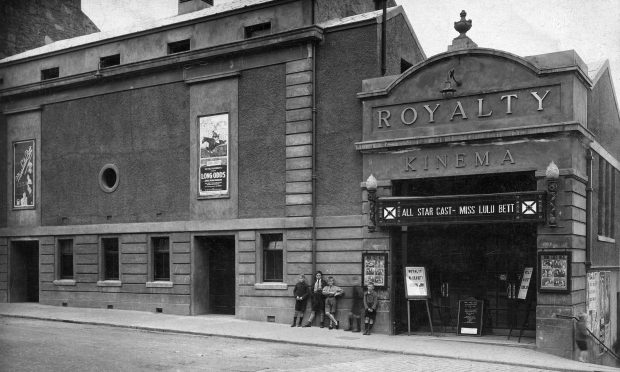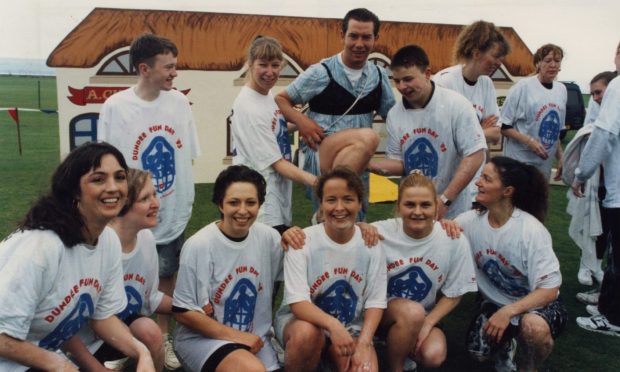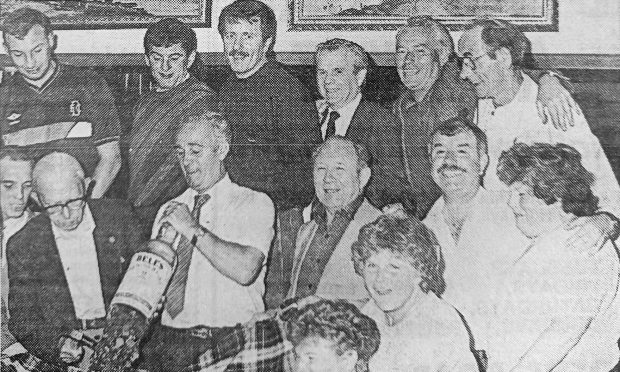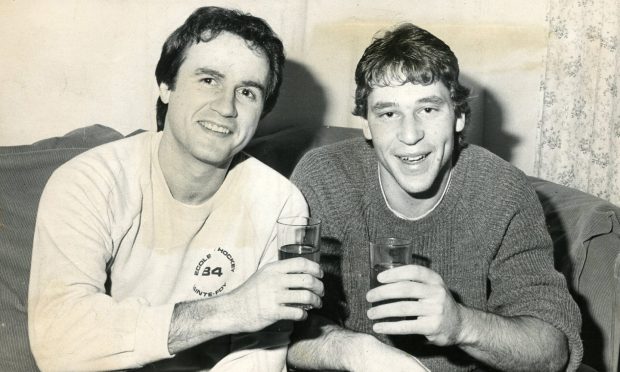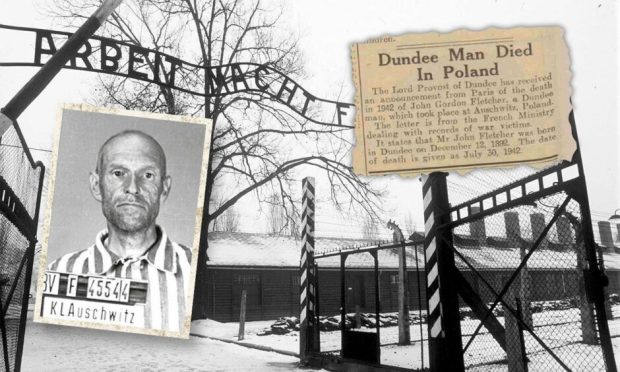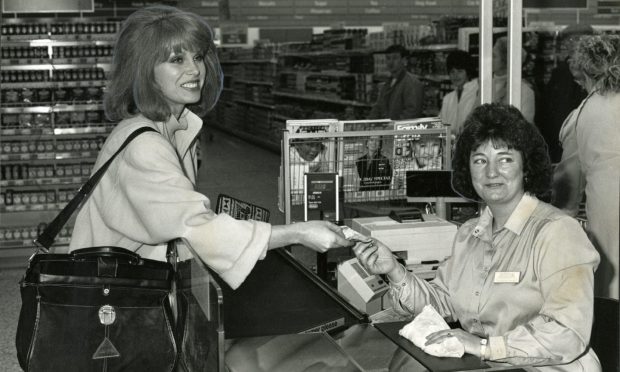Sam Clow will tuck into his Christmas dinner alongside his young family with his pager beside his festive fayre.
The Arbroath RNLI full-time coxswain/mechanic and his volunteer crew will drop everything at a moment’s notice if the pager goes off.
Giving up their time to help save lives at sea is a tradition which runs through all 238 RNLI stations, whether it be mums and sons, or dads and daughters.
Part of life
Sam said the drill is the same for the crew all year round.
“We remain on call 24/7 over Christmas and that’s the reality of the job,” he said.
“They know if that pager goes, they have to leave their Christmas dinner, but no-one minds doing it at all.
“It’s just part of life.”
Nationally, the causes of call-outs over the festive period have changed over the years.
In the early 1980s the most common reason was to commercial fishing vessels and powered craft.
Since 2000, many of those needing help are often just visiting the coast with slips, trips and falls and tidal cut offs also a contributing factor to RNLI call outs.
Sam said: “Christmas is a big family celebration, particularly for the lifeboat crew when you have been working all year and a lot of your spare time is eaten up by volunteering.
“I think it is a good time to sit back and appreciate the support you get from the family who step in at a moment’s notice when your pager goes off.
“It’s very easy to be lulled into a false sense of security that because it’s Christmas you won’t be called out but the reality is that it can catch you by surprise.
“I still remember my first Christmas Day shout as a family man because I was meant to be spending the day off but we were short of numbers.
“We’d always try and ensure the rota worked so those with children wouldn’t work at Christmas and they could turn their pagers off.
“Then at Hogmanay and New Year the single members of the crew would get time off to enjoy a drink and we’d cover so it was a good balance.
“But that first year we were short on crew and although it was my son’s first Christmas I stepped up and volunteered to stay on.
“Typically the pager went off at 6.30am just after Santa had been!
“When I eventually got back home everyone had been waiting for me so they could open their presents and get on with the day.
“So even though the chances are unlikely you have to be prepared.”
Ready to respond
Sam said the crew will start to take a break from training in the run-up to the big day but they will still carry their pagers and be ready to respond to a shout.
“As with all the emergency services who will be on call over the festive season, you just don’t know what’s round the corner,” he said.
“I was a volunteer for eight years and I always sit on Christmas afternoon and look to see how many of the 238 stations across the coast have been out.
“Some might think that’s strange on Christmas Day but it’s purely down to curiosity to see who went out and what time they got the call.
“We are a family and I do it out of appreciation for the volunteers, not just here, but across the UK and Ireland.”
Sam won’t have a drink over Christmas just in case the pager goes off and the crew will also be keeping a clear head in case the worst should happen.
“I struggle to restrict myself on the eating side but certainly with alcohol we have to bear in mind that if every one of the crew has a tipple on Christmas Day then the pager will go off but the boat won’t be going anywhere,” he said.
“I’ve a couple of bottles of drink in the house as early Christmas presents and I know for a fact they won’t be getting opened any time soon!”
Staying safe
As a result of Covid-19, fundraising activities have been restricted.
The RNLI has spent £1.2 million this year on PPE, including almost 700,000 face masks, 2.4 million gloves and 4,700 litres of hand sanitiser.
“It’s been a very different year particularly for the volunteers who have had to adapt to the way we work, respond and train during the global pandemic,” said Sam.
“There’s been a lot for everyone to take on board and remember.
“The way we deal with casualties on the boat has changed because of Covid-19 regulations; the way we do CPR has changed; and every time we launch the boat there are these considerations going on in everyone’s minds.
“Normally it is drilled into you – you know how you are going to respond.
“It is like being on auto-pilot but now everybody has to take a step back and ask what are the new procedures and make sure we do everything by the new guidelines.
“We have to do everything by the book.
“If we make a mistake it could close the station for two weeks.
“That’s the worst case scenario so we have to be very careful in what we do and follow procedures because the last thing we want to do is put a lifesaving asset which is funded by the community for the community, out of commission, just because one of the lads didn’t wear a mask.”
Community support
Sam said the lifeboat shed would usually be busy all year round and opening its doors to community groups to give water safety advice and provide tours.
“These really are strange times because usually we support lots of visits from schools, Brownies, Guides, Cubs, Scouts, Army cadets and youth groups,” said Sam.
“There’s also all of our annual fundraising activities such as the fish supper evening and the annual lifeboat day which had to be knocked on the head.
“But considering all those factors, the support for the fundraising appeals we have been able to run has been fantastic.
“We’ve also received some lovely cards and even some Christmas decorations through the post from a local school which was a nice gesture.
“The pandemic has affected everyone – others much more than ourselves – so to still have that backing from our local community has been very special.”
Life and times of Arbroath RNLI
Arbroath’s lifeboat service was established in 1803, before being transferred to the RNLI in 1865.
Arbroath Town Council agreed to build a boat shed on East Grimsby.
The lifeboat was funded by an appeal to the readers of the People’s Journal newspaper.
The appeal raised so much money that there were sufficient funds to pay for two new boats and People’s Journal No 2 arrived in 1866.
Considerable danger
In 1905, the German schooner Gesine grounded at Westhaven and the lifeboat James Stevens was launched.
The rescue of the five-man crew was carried out amid considerable danger – a fact recognised by the kaiser, who presented silver watches, each engraved with his monogram, to the first and second coxswains and the bowman, along with £20 to be shared equally by the rest of the crew.
Arbroath continued to use pulling and sailing boats until 1932, when the John and William Mudie entered service.
The Duchess of York named the new vessel and an “ABC Presents” black and white film recorded the event.
Tragedy
Crews saved many lives over the years but also suffered tragedy at sea.
On October 27 1953, the lifeboat Robert Lindsay was lost after being struck by a huge wave close to the harbour following a search for a vessel in distress. Six crew members died.
The current lifeboat, Inchcape, takes her name from the reef on which the Bell Rock lighthouse stands.
Arbroath also has an inshore lifeboat, the D class boat, Robert Fergusson, named after one of the first poets to write in both Scots and English.
